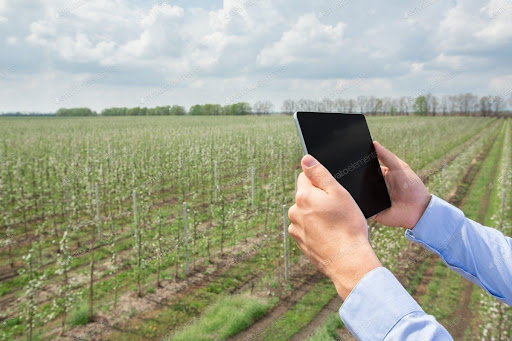How technology is transforming agriculture towards sustainability?
There are multiple reasons why improving the agricultural system is vital. The climatic changes and challenges in energy demand need sustainable agricultural practices for growing nutritious food, maintaining the planet’s health, and ensuring the livelihood of local communities. Sustainable agricultural practices restore the soil quality, conserve energy water, and values diversity.
In India, 18% of the GDP comes from the agricultural sector. Though there has been significant improvement in socio-economic growth, agriculture still confronts various challenges such as low productivity, the negative impact of climate, and most importantly, the lack of easy access to Agri finance companies in India.
In such a scenario, technology plays a vital role in transforming agriculture towards sustainability through digital sensors, drones, improved irrigation systems, biotechnology, and fleet management. Read on to see how this transformation occurs using the latest technologies.
How is technology transforming agriculture?
Advancement in technology has made it possible to address various challenges farmers face, from soil and climate issues to irrigation and gaps in the supply chain.
- The accurate prediction of weather patterns helps adopt sustainable irrigation practices and thus reduces wastage, which results in better yields and higher incomes.
- The availability of smartphones makes it easier for farmers to get all relevant updates and quickly monitor their crops.
- Digital sensors, robotics, location data from satellite and GPS are used for changing the face of Indian agriculture.
- The AI-driven solutions for the sector are expected to rise by 22.5% CAGR as per Niti Aayog by 2025. It would be valued at $2.6 billion.
- Big data helps enhance the yield, reduce risk, and improve efficiency. The availability of the right data allows farmers to comprehend when to sow crops and the techniques to be used.
- Climate change has been an issue for a few years, and its adverse effects lead to a loss in the agricultural sector. This has made climate-resilient technologies the hour’s need to tackle climate change challenges efficiently.
- IoT-based approaches help in accurate farming and deliver precise outcomes as farmers can make informed decisions and optimise cost and resource utilisation processes.
- Financial agencies such as NAFA (Netafim Agricultural Financing Agency) and other agriculture NBFCs in India provide agricultural machinery finance and loans for different agrarian needs, which has made it easier for the farmers to carry out their farming operations.
Sustainable agriculture through technology-enabled solutions:
Comprehending the health of soil and crops has become easier through digital agricultural solutions with the help of computer vision and deep-learning algorithms. Crop monitoring systems employed in farms use smart sensing technology, which collects data related to the state of crops, such as their temperature, humidity level, and other health indicators. All these help farmers take timely action before anything goes out of track.
Drones can be used for irrigation in drier regions. Data collected by the smart sensors in the weather stations are analysed by software. So the farmer can get the complete analysis with a detailed forecast to avoid climate change-induced crop loss. They use resources more efficiently based on the information received.
Such a kind of data-driven agriculture assists in boosting production as the best ecosystem is created for the growth of crops. Similarly, genetic engineering and other best practices in cultivation help increase outputs. Predictive analytics tools help understand the effect of the environment on crop yields and come up with the best course of action.
Final Word:
When technology aims at equipping the agricultural sector with the best tools to help in following sustainable practices, the agricultural finance companies like NAFA empower the farmers to get access to loan and lease equipment for the continuation of efforts in the sector. Advancement in technology has brought transparency and price control to the market. The only thing that needs focus is increasing awareness of the latest technologies in farming practices. When there is a significant rise in the demand for food, it becomes mandatory to follow technology-enabled sustainable farming practices to boost the quantity and quality of outputs with less effort.
Most farmers lag in implementing the technology today due to a lack of knowledge of the developments. So the government needs to take enough measures to train the farmers on these tools and technologies to implement them in their farming practices to get better yields and remain profitable. It will raise their standard of living and be beneficial for the whole society.

